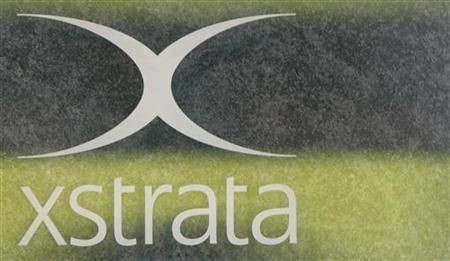Xstrata, Glencore Talk Merger, Combination Would be Worth $79B

(REUTERS) -- Mining group Xstrata and commodities trader Glencore are in talks about an all-share deal that could create a combined group worth more than 50 billion pounds ($79 billion).
The world's largest diversified commodities trader already owns a 34 percent stake in Xstrata and a tie-up between the two Swiss-based businesses -- potentially the biggest takeover to date in the industry -- has long been expected as Glencore aims to add more mines to its trading clout.
Speculation accelerated after Glencore's bumper $10 billion listing last May, which handed the trader and its ambitious chief executive Ivan Glasenberg the currency for deals. The listing also allowed the market to put a value on Glencore -- a key demand from Xstrata shareholders and its management.
Glencore -- a trader of metals, minerals and oil that now also has assets from mines to farmland -- said at the time that the motivation behind going public after almost four decades as a private company was to seize acquisition opportunities. But so far it has been restrained, buying out minorities in Australian nickel producer Minara and seeking control of South African coal miner Optimum.
These two companies were expected to merge and this is obviously a little bit faster than we had anticipated, but it makes sense given how the companies have performed and the current market positions, said Collins Stewart analyst Tim Dudley.
Glencore shares have fallen almost 17 percent since its listing, but it has still outperformed the drop in Xstrata.
News that Xstrata, the world's fourth largest diversified mining group, had received a concrete approach and was in discussions, boosted shares in both companies, sending Xstrata up 13 percent and Glencore over 5 percent in early London trade.
Glencore's Hong Kong-traded shares had gained as much as 6 percent before trading was suspended.
It confirms why Glencore went public. They needed the capital to buy other companies, said Ion-Marc Valahu, a fund manager at Geneva-based firm ClairInvest.
Both sides said there was no certainty an offer would be made and the deal was described as an all-share merger of equals, which would imply a friendly deal without a premium.
The two sides have little overlap on the mining side, meaning a combined Glen-strata entity would get synergies from some areas of marketing but would otherwise combine industrial and operational assets that would create a giant presence in copper and coal, among other commodities.
MERGER OF EQUALS
Any deal would also have to be friendly, meaning Glasenberg and Xstrata Chief Executive Mick Davis, will have to agree on the one thing that has so far kept the two apart -- valuation.
Davis and his Chairman John Bond are expected to be resistant to any deal that does not offer substantial upside for shareholders.
Glencore, though a shareholder, would not be able to vote on a deal, leaving the decision with institutions.
(The merger) makes a lot of sense. I suppose it had to come sometime, said Charles Stanley analyst Tom Gidley-Kitchin.
It will be interesting to see whether the personalities play a role in it -- I imagine that Mick Davis will be resistant to any merger that doesn't involve a decent premium for Xstrata, but it'll be interesting to see.
Xstrata itself made a merger of equals bid for Anglo American in 2009, but that failed after Davis steadfastly refused to offer a premium.
Glencore's Glasenberg has said publicly he sees value in a deal with Xstrata, while Davis has told analysts the prospect of having both as independently listed firms was unsustainable.
If Glencore were to buy all the outstanding shares in Xstrata at current market prices that would cost around 21 billion pounds, making it the sector's biggest deal since Rio Tinto's acquisition of aluminum producer Alcan in 2007.
© Copyright Thomson Reuters 2024. All rights reserved.






















